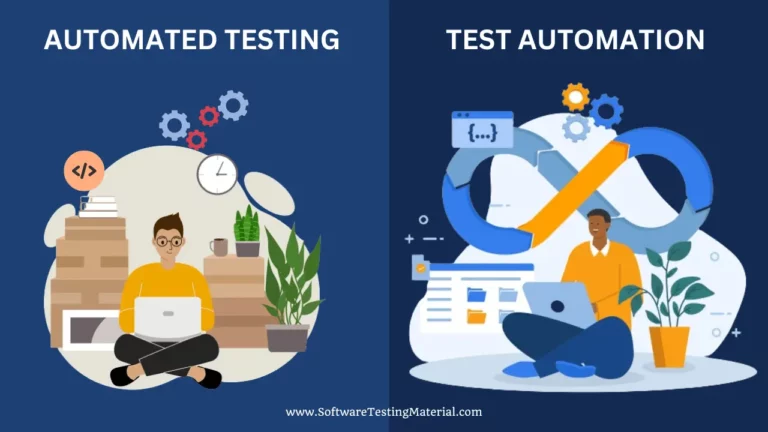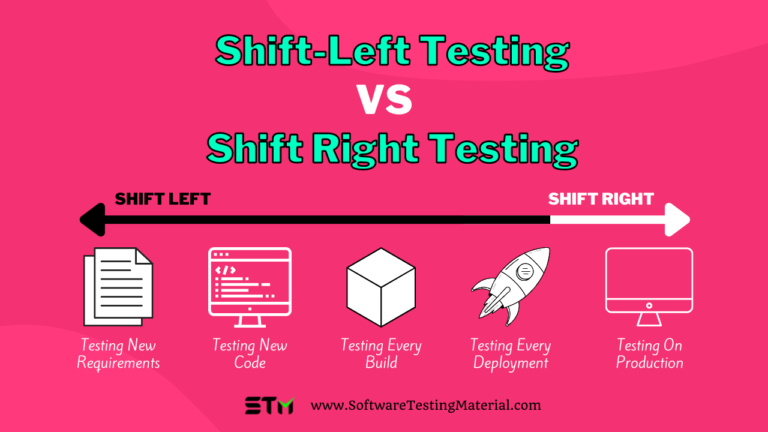How To Hire A QA Engineer | Ultimate Guide
When managing a team, resourcing is one of the major tasks you’ll have to deal with.
Hiring any new member to any team or organization is a tricky task all by itself, but when hiring a highly technical role such as a QA Engineer can be more difficult.
The entire process is not straightforward. We have to translate the candidate’s previous experience and qualifications into skills and expertise and then check whether they fit the role.
When your organization’s quality assurance (QA) process depends on this role, getting it right becomes crucial.
Recruiting the right QA engineer can make the difference between launching globally trusted, reliable software and releasing an inadequate software product that consumes the time and energy of the engineers in fixes and iterations.
In addition, it can create much bigger issues and losses for your organization.

Importance Of A QA Engineer In The Software Development Lifecycle
Here are some of the ways a QA engineer may involve in the development team:
- QA engineers participate in planning meetings with the development team to discuss proposals and software improvements. QA engineers provide valuable input around the various challenges of delivering projects, help set testing standards, and create evaluation methods for the work.
- QA engineers mention testing needs and requirements to be included in overall development time. They include any risks and mitigation and allow time for improvements.
- While the software is in development, QA engineers continuously work on expanding their testing suite. They sometimes make or request code edits and ensure that integrations with other software work smoothly.
- Before the software gets deployed to the live environment, QA engineers conduct final checks and measurements against the exit criteria in the test plan. They work with the release manager to ensure the software is ready to be released to the live end-user without any bugs.
QA Engineer’s sole responsibility is to validate the software before it’s presented to the client/user.
The ultimate goal of Software testing is to prevent a bad user experience, which blocks a software product’s success.
Also, a low-quality software product with many bugs would result in the failure of the software product in the market, which leads to financial losses for the company if they go undetected.
Understand The Roles
When hiring a QA engineer, we have to have a distinction in mind.
What is the requirement within your team, and what should you look for in each hire?
Let’s look at the different roles and responsibilities for various QA positions.
#1. QA Engineer
Here the candidate has to bear the responsibility of ensuring the quality of the final products.
This position requires the testers to have a solid knowledge of coding and developing frameworks and automation to execute tests at various stages and parts of product development.
#2. QA Analyst
Here the candidate should have the ability to understand the business logic of an application even at an early stage of development before any code is written.
This position requires the tester to analyze the business needs, plan high-level development, and build use cases to test manually to ensure an idea is viable.
#3. QA Tester
Here the candidate has a more junior role, and they should have the skills to perform test executions without much involvement in the planning phases or creating frameworks and automation.
A business with huge teams usually they have several QA testers, each of whom has specific responsibility for a particular stage of software development.
#4. QA Automation Specialist
Here the candidate should be capable of developing a testing framework, which is used in conjunction with other tools to test software automatically.
In a nutshell, an QA automation specialist is a senior role who has the knowledge and skills required to write the test scripts to check the code when the development team completes the scripting.
Test scripts are important as they enable simultaneous validation of different scenarios.
How To Hire A QA Engineer
Let’s get into the actual process of hiring QA Engineers for your organization.
Here procedure will include the steps you may follow while looking for the best employees for your team!
#1. Job Posting
When you are seeking to hire a new QA engineer, wishing to hire QA Engineers for your company, here you have to think about ways to reach out to QA Testers around the world.
You have to spread the word about a job opening at your company. Talk with various people about the skills and experience you want your potential QA Engineer to have.
You can create job posts for websites and applications like LinkedIn and Indeed.
Moreover, you can post advertisements on numerous social media sites that would attract QA Engineers.
#2. Screening Process
Here we have to scan several resumes and screen them.
When the engineers are interested, QA Engineers looking at the job postings will send you their resumes over emails, forms, and links.
You can look at those portfolios manually or use automated tools to scan and examine the resumes and CVs.
This step will help you sort out job applicants and select the most suitable candidates for the next round.
We have various ways to test the candidate, including giving assignments and taking on projects.
Through these assignments or projects, we can ask numerous Quality Assurance Test related topics from the candidates.
Further, you can determine the candidate’s competence based on results, deadline submission, and quality content.
#3. Interviews
Sometimes if several candidates apply for the same role, some preliminary tests such as aptitude tests and online quizzes might be given to them to filter out the candidate.
This usually happens when hiring freshers.
There might be several rounds of interviews for the candidates, usually determined by the organization.
The range may vary from a single technical interview to multiple rounds, including telephonic interview, aptitude test, group discussion, task/assignment, technical interview, HR round, and more.
The final step of the hiring process for the QA Testers is the Interview round.
Here you should evaluate both the hard and soft skills of the candidates with the interviews.
In this interview process, the candidate should prove themselves as ideal QA Testers by displaying their efficiency in both theoretical and practical knowledge of the testing domain.
You must evaluate the candidate’s communication skills, one of the most crucial aspects of any personal interview.
How To Create The Right Job Postings For A QA Engineer?
The purpose of a job posting is to sell the position and should be focused on an engaging hook to intrigue the potential candidate’s interest.
Let’s look into the step-by-step process of creating a job postings
1. Write the job title with an engaging title.
2. Introduce your organization.
3. Write the job description.
4. Spell out the top benefits.
5. Include location details.
6. Finish with contact and application information.
7. Review, Reread, Edit, and Post.
#1. Sample Job Postings:
We are currently looking for a Quality Assurance (QA) engineer who possesses the necessary skills to develop and execute exploratory and automated tests to ensure the software’s quality.
QA engineer responsibilities include designing and implementing various tests, debugging, and defining corrective actions.
The candidate should be able to review software requirements and track quality assurance metrics.
#2. Responsibilities
- To review software requirements, specifications, and technical design documents to provide precise and meaningful feedback.
- To create detailed, concise, and well-structured test plans and test cases.
- To estimate, prioritize, plan, align, communicate, and coordinate various testing activities.
- To design, build and execute automation scripts using various automation tools.
- To find, report, document thoroughly, and track bugs.
- Perform thorough regression testing when a new version is deployed.
- To build and apply testing processes for new and existing software products to meet client needs.
- Coordinate with internal teams, including developers and product managers, to identify software requirements.
- To monitor debugging process results.
- To investigate the causes of buggy software and train users to implement solutions.
- To track quality assurance metrics, such as defect densities and open defect counts.
- To stay up-to-date with new testing tools, technology, and test strategies.
#3. Requirements and skills
- Proven work experience in a software quality assurance role.
- Strong knowledge of software QA methodologies, tools, and various testing processes.
- Experience in writing clear, precise, and comprehensive test plans and test cases.
- Hands-on experience with various automation tools.
- Good knowledge of SQL and scripting.
- Experience working in a team that follows the Agile or Scrum development process.
- Experience with other testing techniques, such as performance testing, security testing, accessibility testing, and more is a plus.
- Candidates should have B.E./B. Tech degree or higher in Computer Science, Engineering, or a related subject
Where Is The Best Place To Post For A QA Engineer Job?
In large-scale organizations, there is an option to post on internal job boards where employees in the organization can refer their friends and former colleagues and acquiescence to it, and the employee will receive a referral bonus if their recommendation gets hired.
Several job websites allow you to post jobs for free and paid packages.
When it comes to free job posting sites, they allow you to post one or two jobs for free, and they’ll charge after their limit.
For paid job posting sites, it offers you many benefits with several statistics and a dashboard that makes your job reach the candidates easier.
Job portals perform preliminary checks to eliminate fake profiles.
Also, the job portals are country and region-specific.
Certain job portals might be popular in your region.
For the best results, post your job postings on that website to gain more traffic to reach the right candidates
Let’s look at some common job portals where you post to find QA engineers:
- Indeed
- Simply hired
- Naukri
- Monster
How To Screen The Candidate’s Resumes?
The resume screening process allows you to examine the background of individuals and determine their suitability for the job and organizational culture.
It also provides you with an opportunity to consider whether the job ad’s requirements are realistic for the job market.
If there are no applicants that have the required skills and years of experience, then you can make changes to your expectations for the job.
The screening process can be done both manually or can use screening software.
Manual screening is a much lengthier process when compared to the screening software, as it involves you, HR, and other stakeholders reviewing each resume on their own.
Resume screening software usually streamlines the review process by pre-selecting the most qualified resumes based on keywords the recruiter programs the software to detect.
When a recruiter posts an ad for a position, they receive over 200 resumes for just one role.
Usually, employers want only to interview 5 to 10 candidates, and they will reject 98% of applicant resumes through the screening process.
Resume screening software and applicant tracking systems make this process more efficient.
Let’s look into some common steps followed by recruiters to screen the resume:
- Check the credentials mentioned in the resumes matches the requirement.
- Check whether the skills mentioned in the resume fit the role.
- Check whether the resumes are customized for the job.
- Check whether the applicant’s information mentioned in the resume is legit.
Indicator Of A Good Resume:
- A skills list mentioned in the candidate’s resume matches the skills in the job posting.
- Notable achievements that relate to the job.
- A work history that highlights the skills needed for the applied role.
Must Read: How To Create A Resume And Prepare For An Interview
Indicators Of Poor Resume
- Spelling mistakes and grammatical errors in the resumes indicate the candidate doesn’t care enough to review them.
- A skills list that doesn’t mention any of the skills in the job posting.
- A job summary that doesn’t connect to the specific role or organization.
- Candidates’ work history is too long and lists outdated and unrelated job roles.
Interview Process
No recruiter has infinite time to judge and select a candidate.
If you are an interviewee, you should also be prepared for the interview by preparing questions to get the best results.
You can look at this software testing questions and answers to prepare yourself for the evaluation process.
Let’s look into the important topics/concepts/mindset-based questions that will help you determine whether the candidate is a right fit or not:
Question #1: Is the candidate passionate about testing? Does he/she have the right curiosity?
Software testers are not critics of software. They are just curious about how things work, which ends up as a bug or at least a clarification.
So one of the most critical attitudes a tester should possess is curiosity.
Software testers are curious about everything.
This is the critical criterion to be considered when hiring a QA engineer.
They’ll be dealing with bugs and developers all day.
If they are not passionate enough about the quality, there is a high chance that they might let some bugs into the live environment.
Let’s look at some questions that can help you assess the candidate:
- Why do you want to be a QA engineer, or why did you choose QA engineer as a career path?
- Why do you think tables require four legs?
- Why does everyone use an umbrella to protect themselves from rain?
Question #2: Does the candidate understand priority?
Usually, a QA’s day is filled with testing, planning, reporting, and various meetings.
As they are always loaded with multiple tasks most times, if they are not able to define priorities, they will end up in a mess.
They should be able to make the right judgment rather than jumping into everything and not being able to complete anything.
It’s better to leave the work area satisfied that you have completed one of the important tasks.
Let’s look at some questions that can help you assess the candidate’s priority:
- How do you organize your work when you have to switch between multiple projects/clients simultaneously?
- If you’re reporting to more than one manager, how do you prioritize your duties?
- Let’s take a scenario: You return to work after a two-week vacation, and you find fifty new emails in your inbox. How do you choose which emails need to open and answered first?
- Have you ever missed a deadline for a project? If yes, what happened, and how did you handle it? If not, how do you ensure you’re not falling behind such deadlines?
Question #3: Understanding Bug report
The QA engineer should be able to describe the issue to the stakeholders and the development team clearly and concisely.
We must evaluate whether the QA engineer can communicate the issue in a written format. Also, understand the bugs raised by other fellow testers.
Let’s look at some questions that can help you assess the candidate’s knowledge in a bug report:
- What is a defect in software?
- What is a non-reproducible bug?
- Explain the defect lifecycle?
- What is defect leakage?
- Write a sample defect report.
Question #4: Idea Generation
A QA engineer has to deal with a lot of problem management topics.
In such cases, they require a huge amount of creativity, problem-solving skills, and good communication skills to get the work done.
Let’s look at some questions that can help you assess the candidate’s creativity and problem-solving skills :
- What feedback would you give to your former boss?
- Do you prefer to make plans or just be spontaneous?
- If you were to become a dessert, what dessert would you be?
- What will you do with an elephant in your hands?
- Describe a situation at work when you faced a problem you could not solve. What did you do in that situation?
Question #5: Testing concepts
Being a QA engineer, it’s expected that the person should know what testing is and how to perform it better.
Here conceptual knowledge is also necessary and can be evaluated with the below questions:
- Explain the various phases involved in the Software Testing Life Cycle.
- What are the different methods of testing?
- Explain the bug life cycle.
- What are the different types of locators in Selenium?
Question #6: Analytical skill
Here it would help if you evaluated whether the candidate can find the root cause or pattern of an issue is as important as finding an issue.
A QA tester is expected to show that skill too.
Let’s look at some questions that can help you assess the candidate’s knowledge of analytical skills:
- Describe a time when you had to solve a particular problem but didn’t have all the necessary information about it in hand. What did you do to resolve it?
- How do you weigh the pros and cons before deciding on a project?
- How do you identify a hindrance to performance?
- Can you explain the step-by-step process of troubleshooting an issue?
- When you are faced with an urgent issue, what would be your initial reaction? Are you the type of person who jumps right to conclusions and solves problems the right way, or do you first assess the situation before getting into action?
Most of the time, such questions are enough to judge whether the candidate sitting in front of you would be the right choice as a new addition to the team.
Conclusion
Hiring a good QA engineer is very important l for the success of your software product, but it doesn’t have to be nerve-wracking, even if it’s the first time you’re hiring for this role.
With the right goals set and a strong understanding of the different roles and responsibilities of QA engineers, you can write an accurate QA engineer job description to attract your ideal candidates. Using screening software, you can easily find the candidates with the strongest skills and fit for your team to invite to interviews.
Now that you are familiar with hiring a Software Tester and know what to consider before hiring one, it will be quite easy to hire one for your team.
Related posts:
- Career Shift From Manual Testing To Automation Testing
- How To Become A Software Tester
- International Software Testers Day
- Why I Choose Software Testing As A Career
- How To Prepare For ISTQB Exam
- How To Prepare For Software Testing Interview
- Manual Testing Tutorial
- A Day In The Life Of A Software Tester






